Top: Some of the illegal logs Anderson harvested in Weimu, Gbarpolu County. The DayLight/Gabriel Dixon
By Gabriel M. Dixon and Emmanuel Sherman
WEIMU, Gbarpolu County – Isaac Richmond Anderson, Jr. had just come back to Liberia after serving as First Secretary at the Liberian Consulate in South Korea and decided to start a logging business.
“My thing was to ensure that I attract potential investors to Liberia,” Anderson told The DayLight in a phone interview.
Anderson said he contacted Augustine Dunbar, one of his friends, who took him to Weimu, a village in the Bopolu District of Gbarpolu County. Dunbar then introduced him to villagers there, Anderson said. Within months, the logs were ready for transport.
At that point, Anderson contacted Dawoda Sesay, the commander of police deports in the Paynesville area known as Zone Five, to help arrange the transport. Sesay hired three container trucks to move the logs, promising to pay them either US$1,000 or US$900, according to Sesay himself and the truck owners.
Last month, the trucks arrived at Anderson’s logging site, were loaded with logs, and took off. But rangers of the Forestry Development Authority (FDA) halted the transport. Two trucks were arrested at the Klay checkpoint on the Bomi highway and the one at Sawmill on the Tubmanburg-Bopolu highway.
The rangers found out that Anderson and Sesay did not obtain approval from the FDA to transport the logs. The Klay trucks were immediately impounded at the FDA regional office in Tubmanburg. The one at Sawmill was held exactly there. After weeks of investigation, the rangers later discovered Anderson and Sesay were running an illegal logging operation, one of the severest offenses in the forestry sector.
The FDA has sued Sesay and the owners of two of the trucks over the illicit operation.
“The FDA sees the actions of Mr. Sesay and the owners of the truck as a gross violation of the National Forestry Reform Law,” Cllr. Yanquoi Dolo, the head of FDA’s legal department, told The DayLight in an email. “The Managing Director of the FDA, Hon. C. Mike Doryen has frowned on this gross illegality and has requested that sternest of action against the violators consistent with the laws governing the forestry sector.” The lawsuit comes as reports of illegal shipments of timbers and timber products are on the increase.
An investigation by The DayLight has found more details of the illicit activities, following our initial report of the seizure of the logs two weeks ago.
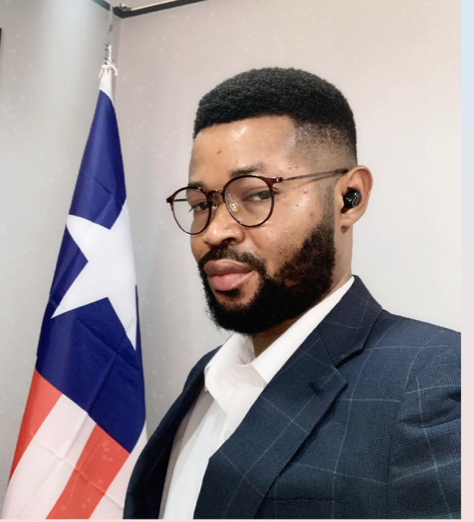
Ex-diplomat Richmond Anderson. Facebook/Richmond Anderson 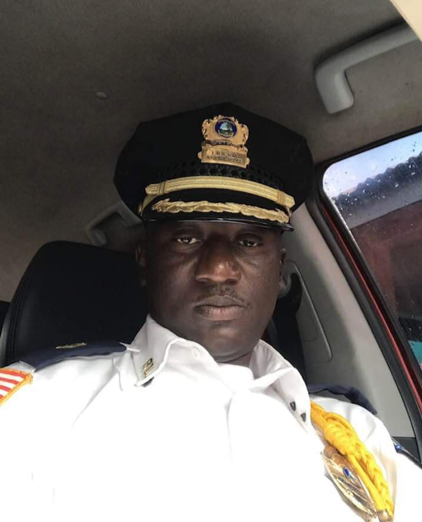
Commander of Zone Five police deports Dawoda Sesay. Facebook/Dawoda M. Sesay
‘Sample’
Before you engage in logging activities in Liberia, you must have a company, registered at the Liberian Business Registry and then apply at the FDA. The agency will vet your company, including its capacity to operate and your criminal record. Once your business meets all of the criteria, it is prequalified to do logging in Liberia. Thereafter, you will have to seek a contract with the FDA or an agreement with a community, subject to the agency’s approval. That goes with the transport of woods.
That was not the case with Anderson. “I have not done logging before, don’t know the different species of logs. I have no idea, it was my first time,” Anderson told us in the phone interview.
Anderson said Dunbar introduced him to a customs officer at the Freeport of Monrovia he only identified as Peter, who told him it was possible to ship woods without a permit.
He said he had Korean business partners who were interested in exporting first-class logs and had assured him of buying the woods once he delivered them. He added that the woods were a kind of experiment for future deals.
“They (Koreans) want to carry the wood as a sample and then pay later,” Anderson said. “So Sesay agreed to help me with some of the money.”
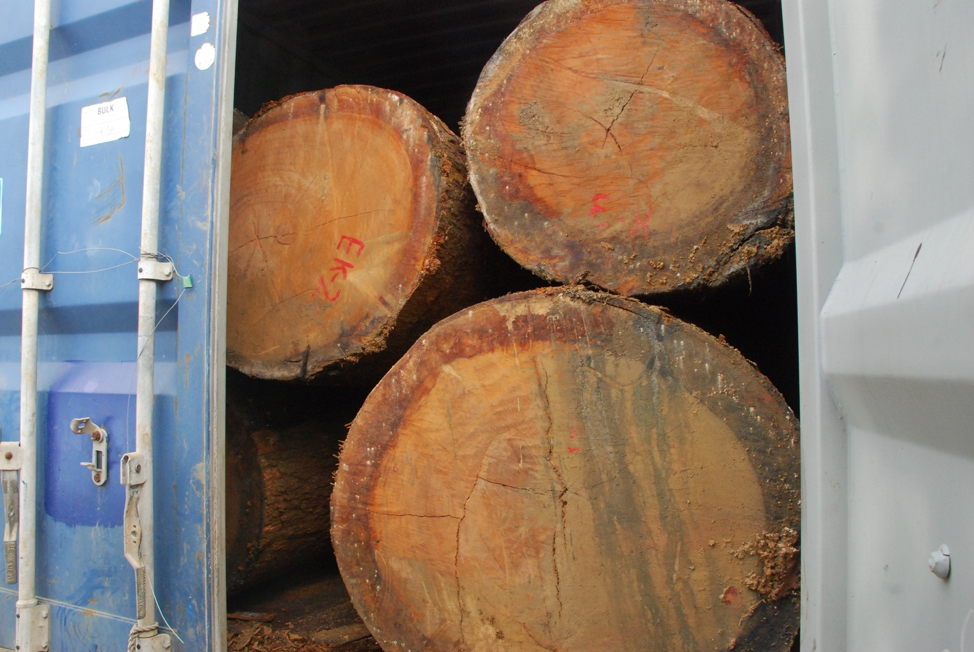
The FDA has indicted Sesay, Shakia Kamara, who owns one of the Klay trucks, and Layee Sheriff, the owner of the one at Sawmill, in separate lawsuits in Bomi and Gbarpolu County, according to court officials. The agency is seeking a US$25,000 fine, a 12-month prison term for the men, and forfeiture of the vehicles, all maximum penalties under forestry laws and regulations. It would indict the owner of the third truck once it gets a name, according to Dolo.
The agency has also asked the courts to allow it to take the logs in line with the Regulation on Confiscated Logs, Timbers and Timber Products. It will need another court order to auction them.
Sesay admits he hired the trucks to transport the woods but said he did not know whether the operation was illegal.
“As police officers, we have our inalienable rights: the right to live, right to survive. So, if my brother came to me and said, ‘Look, I need this assistance,’ then… I made the arrangement… is that something prohibited? Sesay told The DayLight in an interview at his Mount Barclay residence. “Even if I knew what they (truckers) were going to get, that is none of my business. If the transaction was illegal, I was not there to know that it was illegal.
“The good thing there, I didn’t facilitate armed robbery, I didn’t facilitate murder, I didn’t facilitate drugs trafficking, nor human trafficking,” he added.
The owners of the trucks said they were also unaware that the woods were illegally harvested. Sheriff, one of the two trucks’ owners who have been indicted, said Sesay had promised to give them the documents for the wood once they arrived at the site but did not.
The National Port Truckers Association of Liberia said the scandal has “embarrassed” the group. It said it would try to prevent such illegal transport in the future.
“We want to have a memorandum of understanding [with the FDA] because we want to avoid future embarrassment. This is a complete lesson to us now. We know that there is a lot of clandestine activities going on with the transportation of woods,” said Yahaya Kemokai, the secretary general of the association.
The FDA said in a statement last week it has observed that several illegal timber products are being exported without a trace. It said smugglers were hiding woods in containers. “FDA checkpoint and Free Port of Monrovia staff members are instructed to open all sealed containers from forested areas to verify content and ensure that the FDA duly issued conveying permit documents,” the statement said.

‘On Credit’
The site of Anderson’s logging operations appeared equally illegal. A muddy and rough road branches into the forest at the top of a hill. Remnants of the illegally harvested logs lay around.
It was not clear how much volume of logs was harvested. However, Anderson said they were all Ekki woods, a very expensive species of logs that currently sells for US$210 per cubic meter on the international market. His statement was backed by Dolo, who said, “All the trucks have crossed cut Ekki Logs.”
The illicit loggers felled 17 trees but used 15, according to the villagers we interviewed. “It was 17 trees but they said two were damaged, they had holes in them,” said Emmanuel Massaquoi, one of the villagers.
Anderson and the locals had verbally agreed to cut the 15 trees in exchange for US$2,800 per tree, according to both parties. But it was a long negotiation process that involved half a dozen people.
Anderson and Sesay initially contacted Dunbar, who introduced the pair to a man only identified as Korvah. It was Korvah who actually introduced the pair to Massaquoi. Massaquoi then contacted Fatu Samukai, his mother-in-law, who claims ownership of the forest, Massaquoi told us in the interview. Samukai appointed Massaquoi to represent the village. Then the unlawful deal was sealed.
By law, communities are entitled to benefits from their forest resources but they must first meet FDA requirements. Moreover, said the agreement must be approved by the agency. That was not the case with Weimu, another layer of the illegal activities.
Anderson, Dunbar, Korvah, Massaquoi and Samukai could also be indicted, as the FDA conducts a further investigation into the illicit act, according to Dolo. A person commits an offense if they intentionally or negligently cut trees illegally, according to the regulation on confiscated logs.
“I regret my action. I am just appealing to the commercial and legal departments of FDA,” Anderson said. “I have learned the hard way.”
Korvah declined to comment, we were not successful in tracking down Dunbar, and Samukai was still recovering at the Jallah Lone Hospital in Bopolu at the time of our investigation.
Meanwhile, the case at the 11th Judicial Circuit Court in Tubmanburg begins Tuesday. The DayLight will provide you with details of the proceedings as they unfold.
Henry Gboluma and Mohammed Sheriff contributed to this report.
The story was a production of the Community of Forest and Environmental Journalists (CoFEJ).

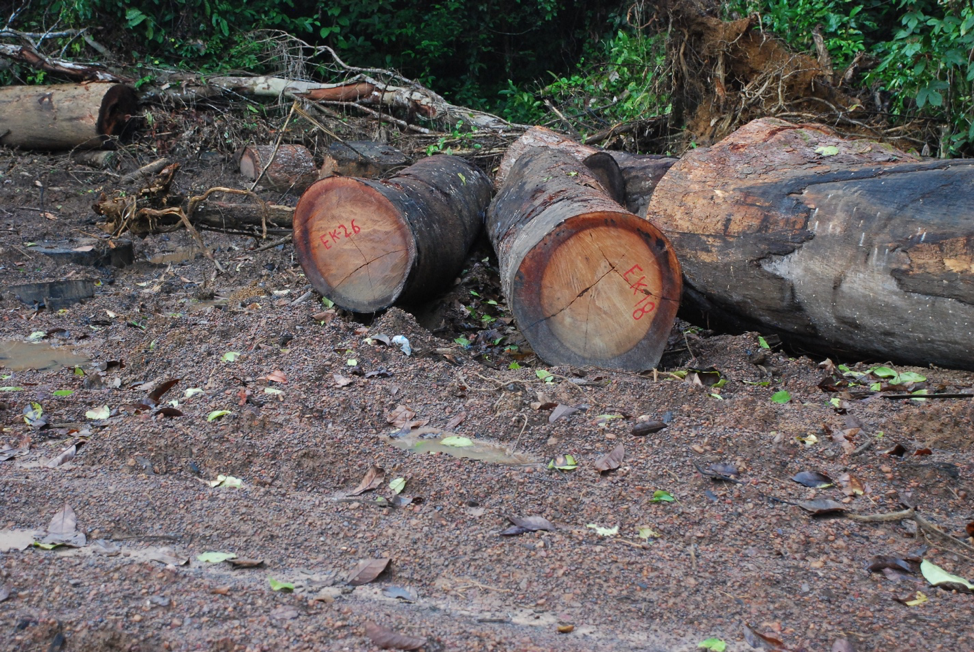
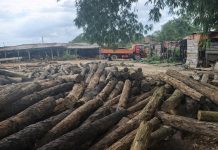
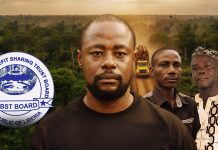

Facebook Comments